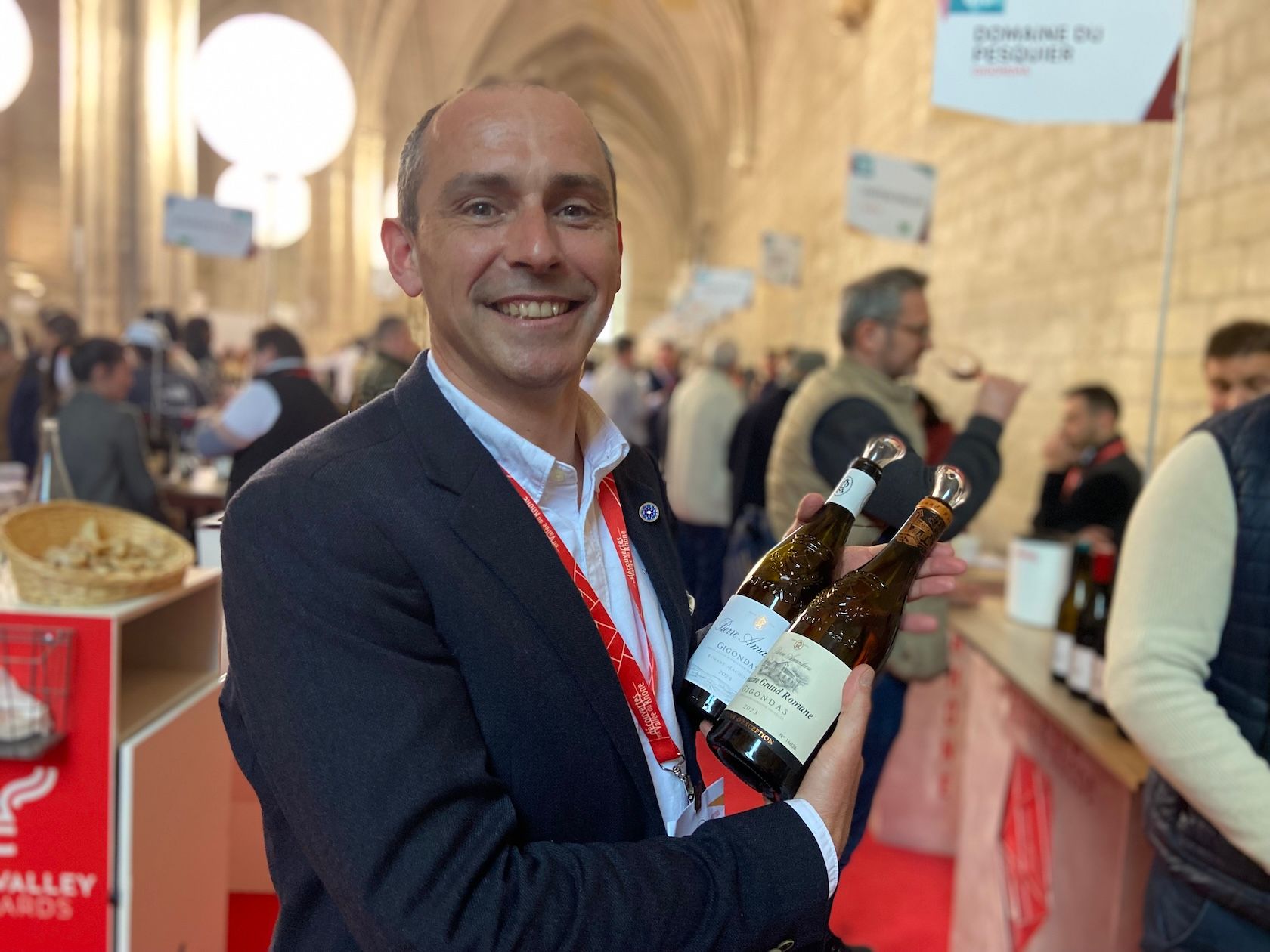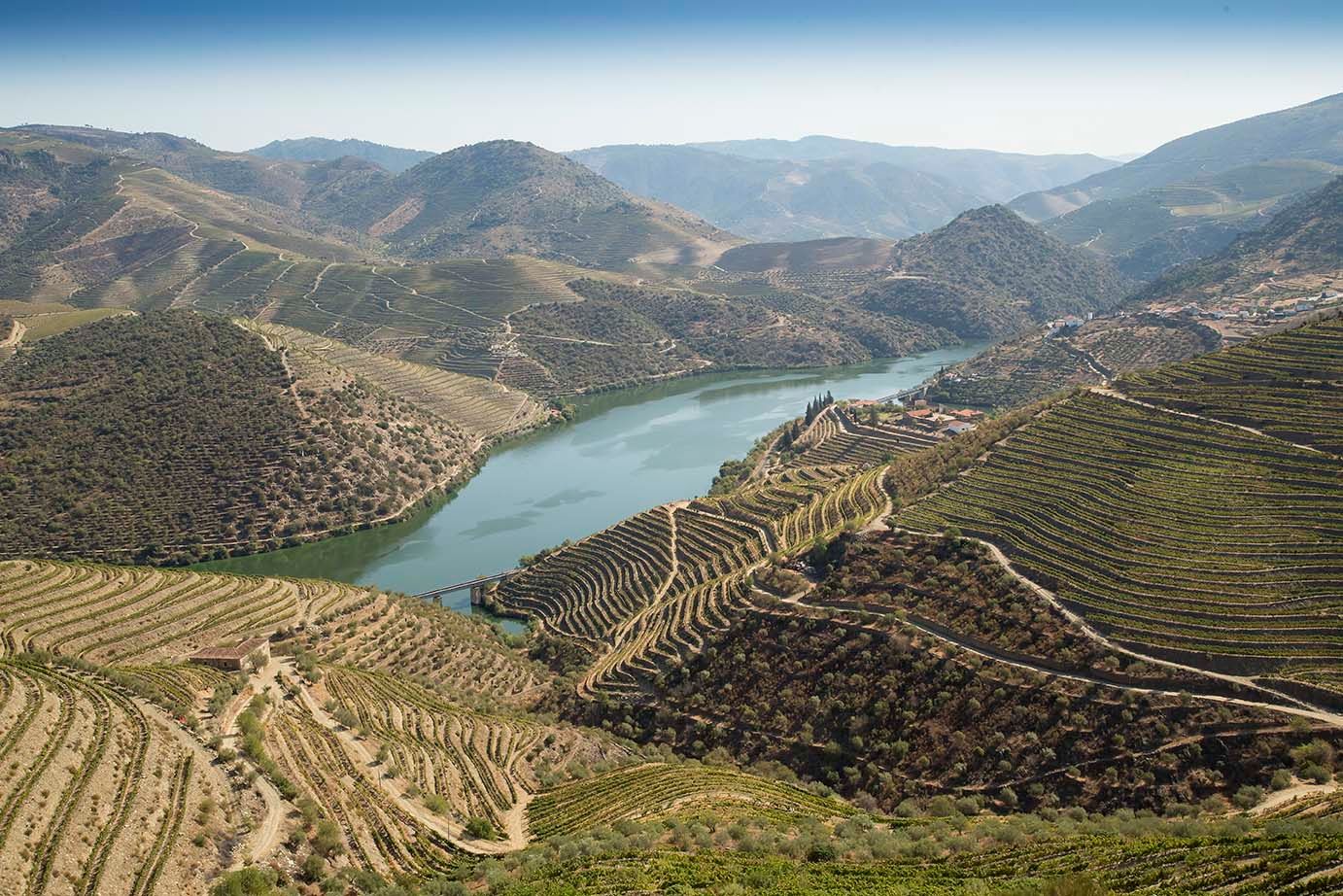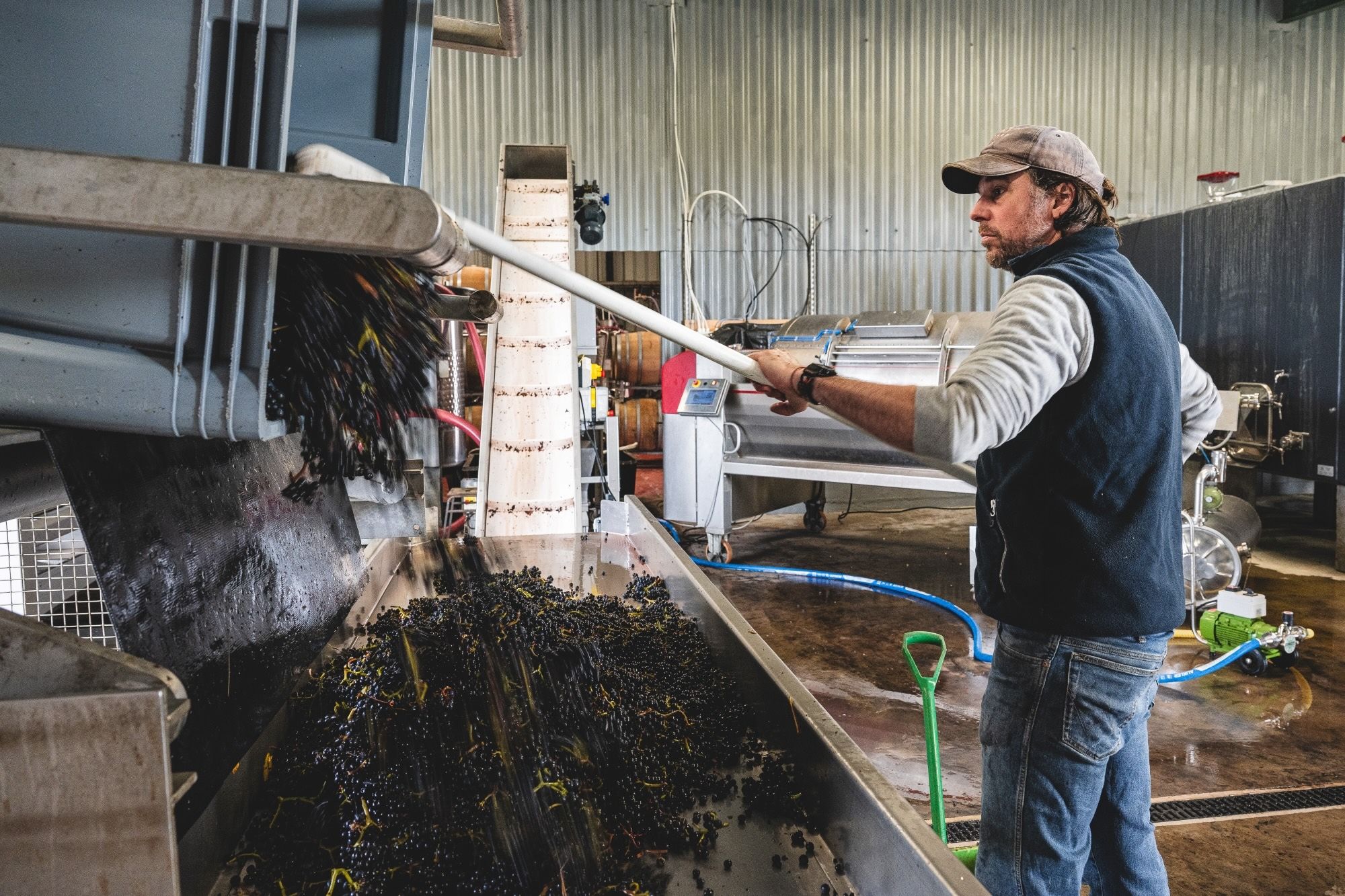Every drinks category is both helped and handicapped by the stereotype image of the kind of consumer you would expect to drink that product. Whisky is very much a male preserve. Both in who it is aimed at and how the sector is perceived. But those are stereotypes that need to be ripped up quickly, as this Distill Ventures debate made clear.
It makes me slightly nervous to watch events on issues like gender inclusion. Will I come away feeling hopeless? Will I learn anything? What can be done, anyway? Sometimes they turn into a session of anecdotes which, although cathartic and important, is not always the most encouraging. But Distill Ventures and Becky Paskin’s Women of Whisky Summit was informative, inspirational and thought provoking.
The panel was the second in a series of talks Paskin is chairing in collaboration with Distill Ventures. The other panellists were:
- Ashley Frey, co-founder, Frey Ranch Estate Distillery
- Hil Ying Tse, managing director, Whiskies & More
- Julie Bramham, global brand director, Johnnie Walker
- Laura Davies, distillery manager, Penderyn Distillery
- Kristy Lark-Booth, owner and head distiller, Killara Distillery (kudos to Kristy for joining at 5am Tasmanian time).
(Click here to watch the full debate)
Taking Paskin’s lead
Paskin used her voice to do great things in 2020. Finding herself with barely any work at the start of lockdown she organised a virtual whisky festival in April through OurWhisky, the company she co-founded with Georgie Bell, head of advocacy at Bacardi. It raised £12,000 for The Drinks Trust’s Covid-19 Emergency Fund. She became the IWSC’s Spirits Communicator 2020. She made headlines for calling out sexism in Jim Murray’s Whisky Bible in September. And she continued to raise her head above the parapet to speak out for gender equality, speaking on podcasts, hosting live discussions on her own Instagram, and chairing Distell’s Women Of Whisky panel in December.
Hers is a voice worth tuning into for all people, not just women. As she explained: “Diversity and inclusion is a subject very close to my heart and I’ve been campaigning for better representation and equal opportunities in the whisky industry with my OurWhisky platform since 2018.”
Paskin began the discussion by asking us to do a Google image search for terms like ‘whisky lover’ and ‘whisky distiller’. “I can guarantee that less than 10% will feature a woman”, she said. I did a search. She was right.
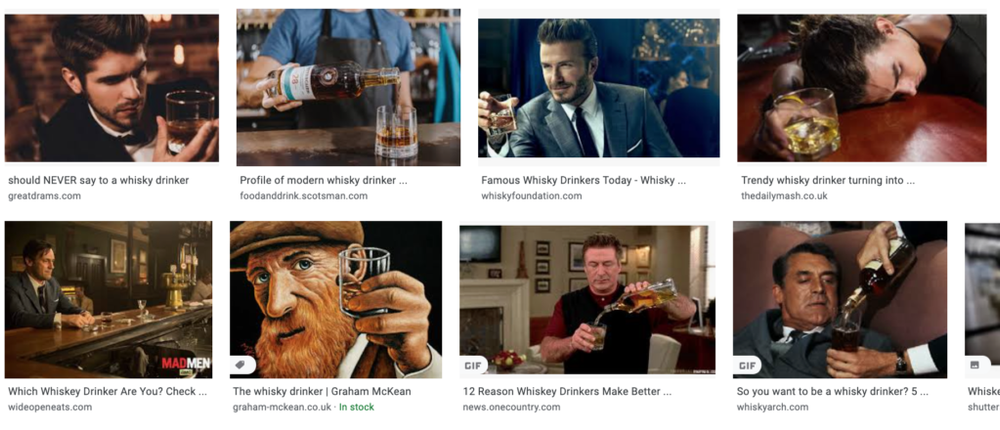
Here’s what comes up in Google images if you search for “whisky drinker”
The image of the whisky drinker is changing, but the simple searches above show there is a long way to go. “It is still considered a man’s world,” according to Paskin, who was continually mistaken for a junior journalist during her time as editor of Scotchwhisky.com.
For Paskin there are two areas that are key to forging a new path. These are in diversity in the workforce, and diversity in marketing and advertising.
Marketing to women
Marketing to a diverse audience has never been so important. “It’s an inconvenient truth for the brands who have staked their whole consumer base and marketing campaigns around a certain demographic, but it’s starting to change now and no longer can you get away with just targeting to that demographic,” said Paskin. “In the same way the cleaning goods industry can’t get away with just marketing floor cleaner and surface spray to women.”
Ashley Frey is keen to make whisky more inclusive, and faces regular oversight on her own role in her business. She co-founded Frey Ranch Estate Distillery with her husband and despite clear messaging that the duo are partners, she still sees photo captions describing: “TheCEO and founder with his wife Ashley”.
Frey has focussed on diversifying the category through marketing to more women. While looking at the brand’s messaging and promotions for the next barrel release programme she noticed a gap in marketing for Mother’s Day and decided to tackle it.
“Why are all the whisky promotions primarily around Father’s Day? Something I really want to excel in our marketing programme is including Mother’s Day and Father’s Day together so that they are equals.”
Paskin agreed: “Imagine how big whisky could grow” if everyone took Mother’s Day as seriously as Father’s Day.
It’s striking to think that so many businesses don’t realise the potential in their female customer base. Women comprise 36% of whisky drinkers according to a recent report by Distill Ventures. That’s a 15% increase in the number of women drinking whisky since 2010. Aside from the ethics, there’s money to be made from making them feel included and wanted by a brand.
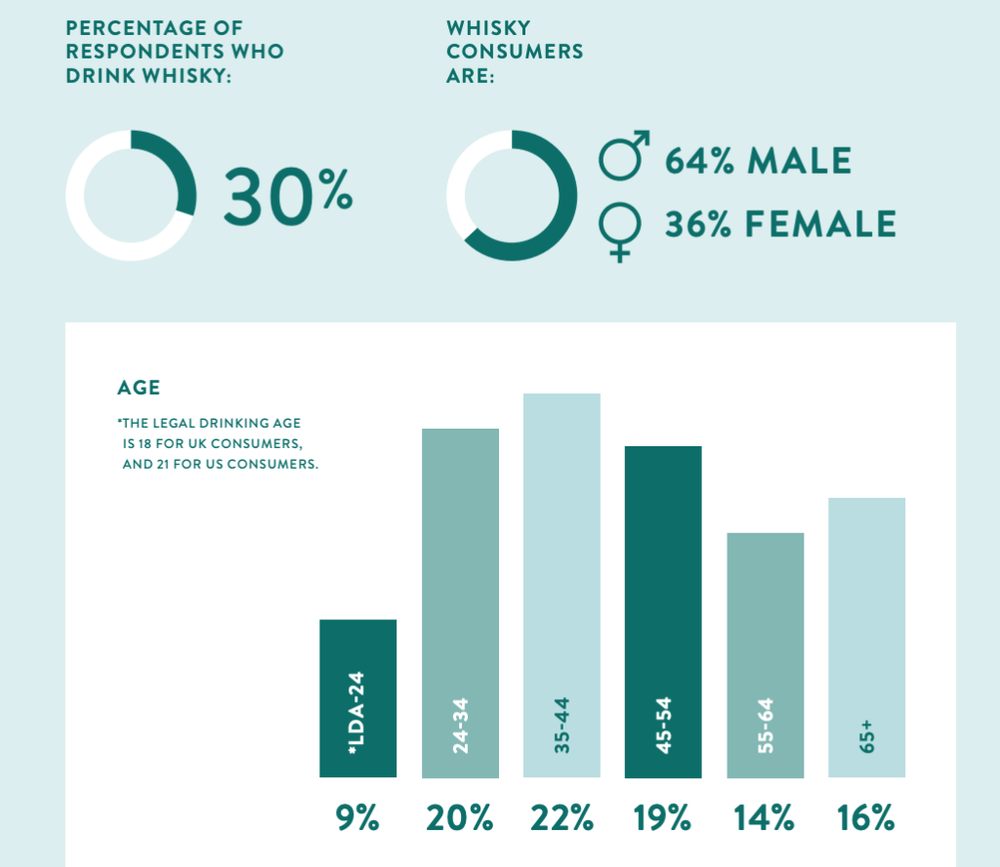
The changing whisky consumer according to Distill Ventures
Kristy Lark-Booth of Killara Distillery added: “I think a lot of the advertisers also fail to realise that 60-80% of discretionary spending is done by women and that women make decision purchases for the household. It’s a huge market that a lot of the bigger companies have failed to realise. It’s massive part of the pie that they are missing out on.”
The future image of the whisky drinker
The challenges of gender portrayal in marketing and advertising span most industries. Whisky’s male-centric image has been perpetuated by everything from films to whisky shows, where scantily-clad women served drinks they often knew nothing about while men made business deals around them.
“I am proud to work in an industry which seems to have moved away from a lot of that,” said Paskin, “but there are still instances where unconscious bias towards men and women do not seem to be a consideration for a lot of brands.”
(Here’s a good example of new drinks advertising)
Paskin says there’s been progress in advertisement across the sector but there is still a way to go. “Great advertising appeals to people in general, not just men or women,” she said.
Julie Bramham agreed there have been some steps taken by the advertisement industry, but there is still a long way to go. “What you’re starting to see in the world of advertising is they are absolutely looking at progressive portrayal as an entry requirement for any entries. Creating great award-winning advertising absolutely has to be in this space,” she said.
Diageo has done a lot of work in recent years on inclusion within its advertising, added Branham. Team Johnnie Walker has been upending the traditional image of Scotch and Bramham claims you will find more women than men represented in its advertisement globally right now. A few years ago Diageo took a look at 100 adverts from around the world and critiqued them in terms of diversity. “What we’ve found is that unconscious bias is a massive factor. You’ve got to work really hard to overcome that,” she added.
Diageo developed a framework which is now used with all agencies that looks at creative development processes, representation in all comms, and the perspectives represented.
“Across the industry we all have to join hands, making sure that we remove unconscious bias as best we can and use things like simple frameworks to make sure that we are portraying people in the most progressive way. It’s not only a gender point. It’s a bigger movement about progressive portrayal of communities.”
(Johnnie Walker’s recent US commercial to mark the impact of Covid-19)
Our unconscious bias
The issue of unconscious bias is something Paskin and the panel delved into several times and, as Bramham pointed out it’s something we all suffer from. I’ve attended a few virtual events over the past few months on diversity and inclusion and one frustration has popped up in them all. The question is always the same: after decades of work on many of these issues, how are we still here discussing how to fix them?
I think unconscious bias has a lot to answer for here. At its best, unconscious bias is a genuine well-wisher that stumbles unknowingly – we’ve all been there. At its worst, it’s used as a guise for those who don’t see it as their duty to educate themselves.
As Amelia Singer highlighted in her piece for The Buyer, it’s also difficult because you often like the people who hold sexist unconscious biases. It makes me think of discrimination I once experienced at work, when I was told plainly that a task would be too physical for me. I didn’t get called into work that day and so also didn’t earn any money. The year prior to that I’d run a marathon. I felt strong. And although it was crushing, it was also confusing. Because in other ways my manager was also one of the most supportive I’ve ever had.
It can feel embarrassing to stand up for yourself in these situations, so it was good to hear the panel’s thoughts on the subject. “Keep calling it out” was Lark-Booth’s advice. Call out companies, call out people.
“If you go into a bar and you notice the person next to you has ordered a whisky and they’ve been hit with one of those crappy comebacks – call out the bartender. You don’t have to do it in a rude or aggressive way. It helps to educate people if you do that. We can’t just be complacent.”
For Davies it’s important for us to pull up those close to us too. “I’ll quite often say it to my brother or my parents to make them know, because quite often it is an unconscious bias. I am very clear with my children that we don’t have male roles and female roles. If we are going to stop the unconscious bias we have to start, and it will take a very long time.”
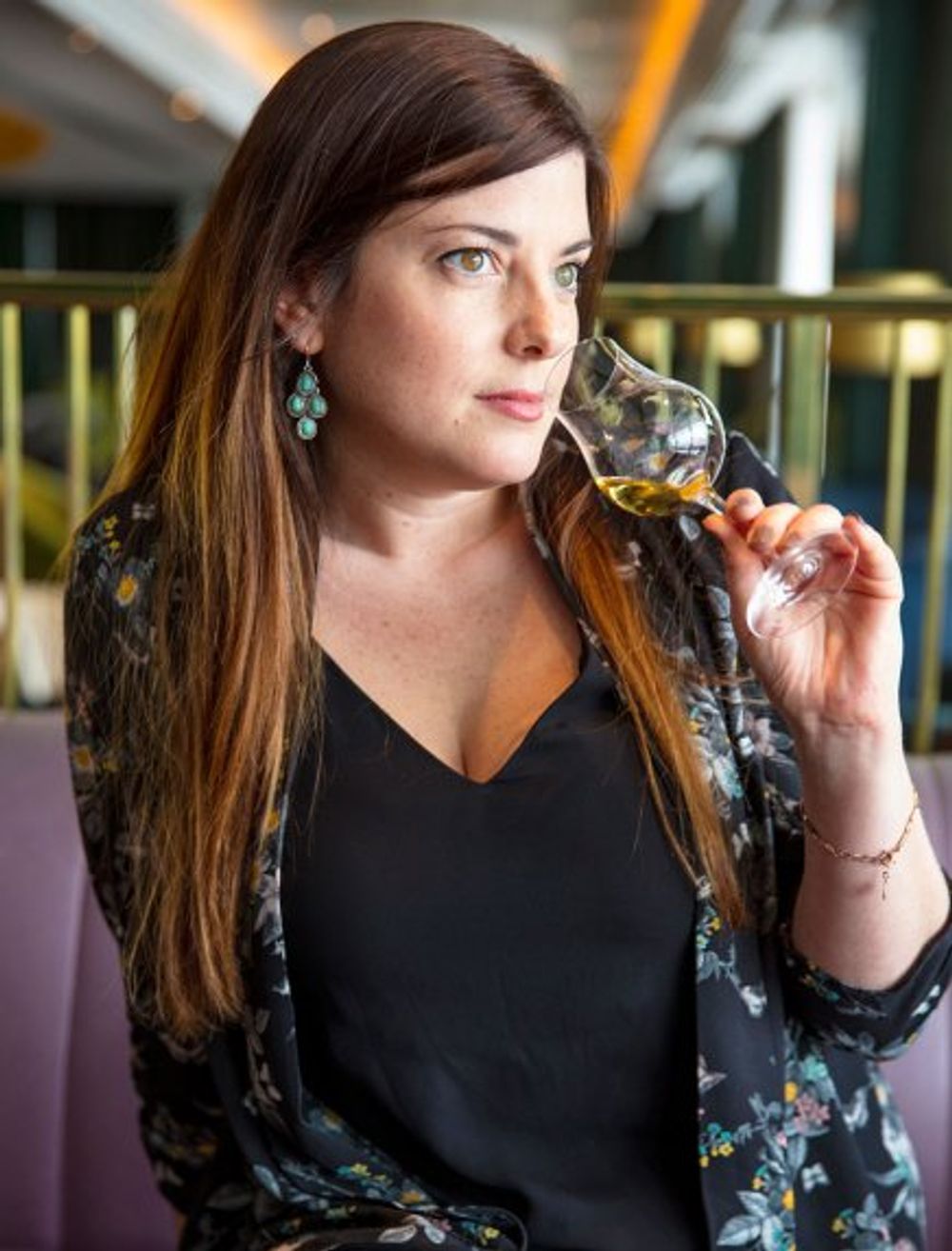
Becky Paskin has been a leading voice in the whisky and spirits industry, primarily for years as editor of Scotchwhisky.com and most recently for campaigning and raising the issue of inclusion and diversity in the whisky sector
A diverse workforce
Diageo has also done a lot of work in inclusion and diversity in the workforce itself. said Bramham. For her, change has to be very deliberate. Diversity isn’t something that happens organically. Last year Diageo introduced a change to its parental leave policy that means of all of its 4,500 UK employees, male and female, will now receive 26 weeks of leave at full pay.
For Bramham the case is clear that diversity is good – and profitable – for businesses. The key is in ensuring that there is an infrastructure in place that supports it. (NB: The Diageo framework is open access and it is happy to share its work with others.)
For Penderyn Distillery Manager Laura Davies, it’s essential that women believe in themselves and show the world they are more than just a box tick in HR’s inclusion objectives. Davies, who is constantly mistaken for a sales assistant at the distillery, feels lucky to have a supportive and inclusive team, but says she’s had to prove she’s worth her title. “It’s been really important for me to show that I am part of the team. I’m not a woman, and they are not men. I’m part of the team. We’re all on the same team.”
For her, by not believing in yourself you are not only doing a disservice to yourself but to other women you are a role model for.
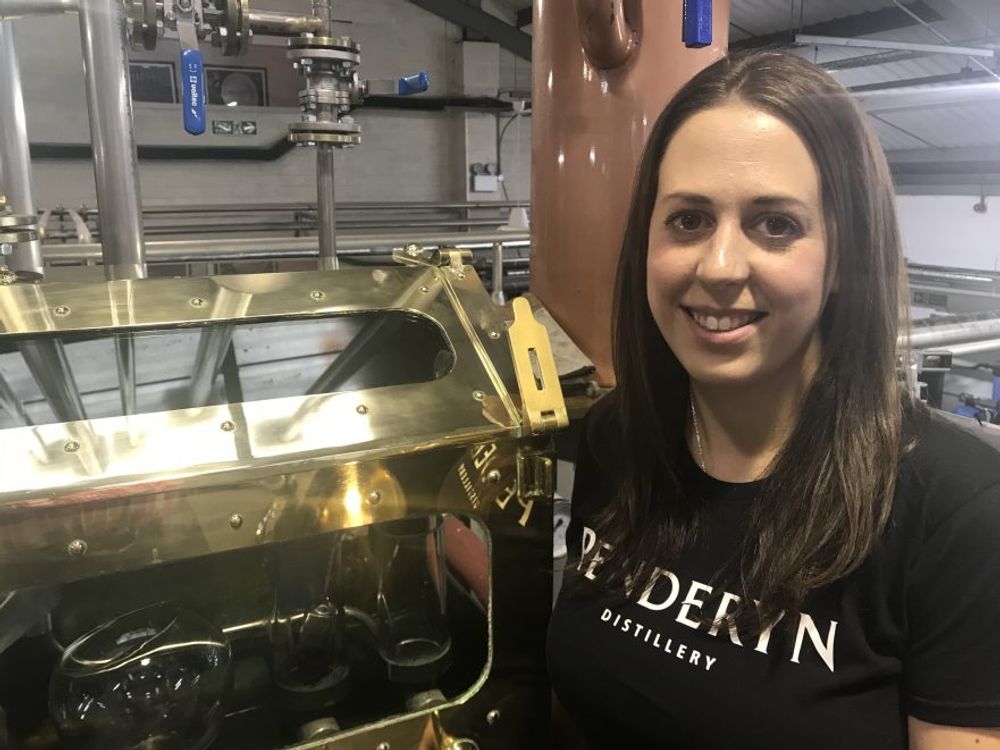
Penderyn’s
Hil Ying Tse, managing director of whisky distributor Whiskies & More, sees a solid female consumer base in Hong Kong and Macau where the whisky culture is relatively young and baggage-free. For her, although whisky marketing is not particularly diverse in Asia, the main issue is more in diversifying the trade.
“There are a lot of female bartenders but I don’t see that many really knowledgeable female whisky or spirits experts in Hong Kong yet,” she said. “I hope it’s coming. I see some whisky schools coming so hopefully that paves a path for more female representatives here in Hong Kong and in Asia.”
For her it’s more about making the workforce more accessible and welcoming for women. “I think the perception of how to do trade needs to change a little bit. You don’t need to keep on going to the same bar doing shots with the bartender to get listed, these little things. It has to start with education and having more role models to show women not to be afraid to dream big and do what you want to do.”
For Lark-Booth, a key barrier to workforce diversity in Australia is in the hiring process. The decisions need to come from the top down and there are huge implications when diversity isn’t championed at a senior level.
“Women who are in the position of employment will employ the right person for the job. Whereas men tend to employ men. Whether that’s unconscious or that’s whether that’s the way things are it’s certainly something that should be addressed,” she said.
Dealing with poor confidence
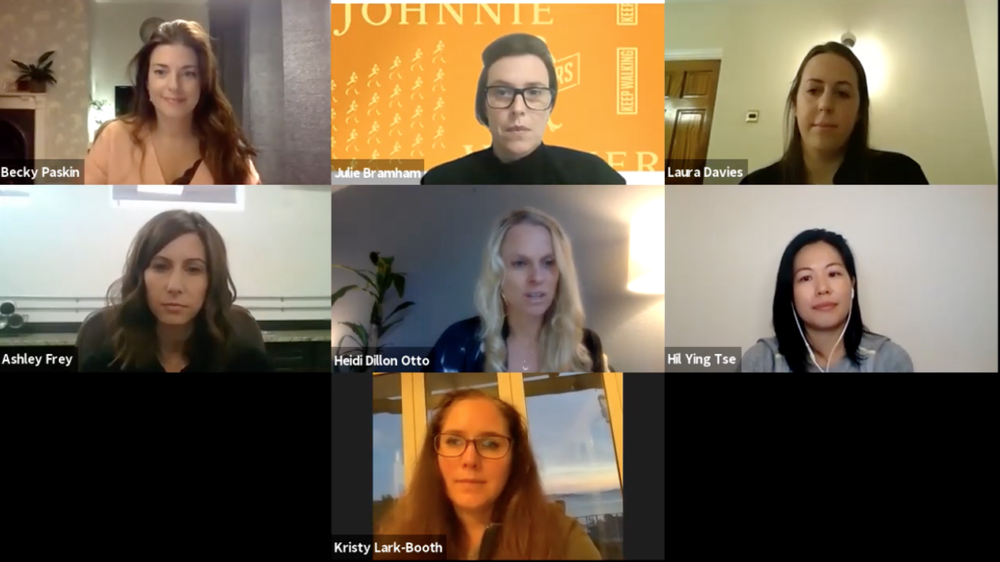
You can watch the Women in Whisky full debate here
Before they even get to the hiring process, Lark-Booth finds under confidence often lets women down. The panel agreed that strong role modelling is essential to inspire and open doors to those without the confidence or know-how. Lark-Booth does a lot of work educating and empowering women through the Australian Women in Distilling Association Inc
“I see quite regularly experienced women applying for the same job as men, but undervaluing their own experience and their own knowledge. Whereas men will just be like ‘yeah man I’m rad hot at this’, and just go for it,” she said. “It’s really exciting to be able to educate women in the industry and watch their self worth grow. Don’t underestimate your self worth.”
There was so much more discussed in the 90 minute, I’d recommend a listen on the Distill Ventures site. Becky Paskin and her OurWhisky platform will also be keeping the discussion going with a series of Q&As in the coming weeks.
Here’s to the day when we no longer need panels on diversity or inclusion.
- You can read Distill Ventures report on The New World of New World Whisky here.

